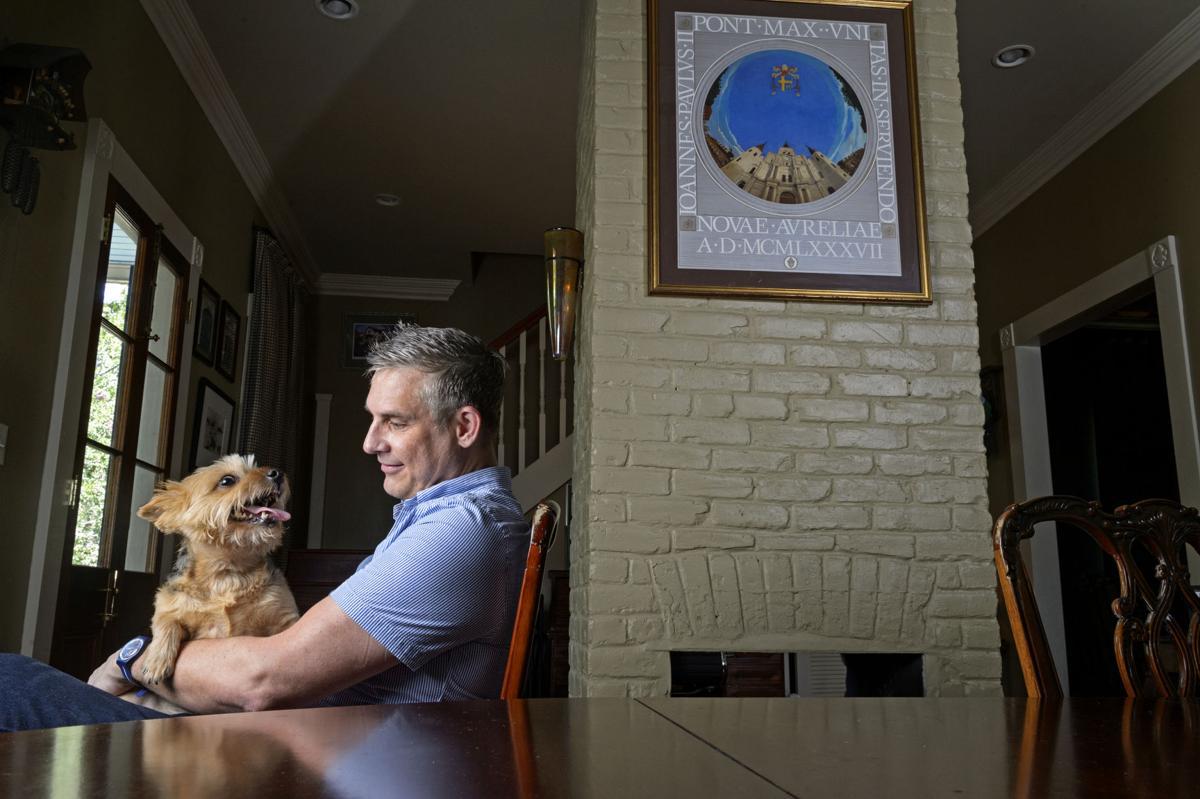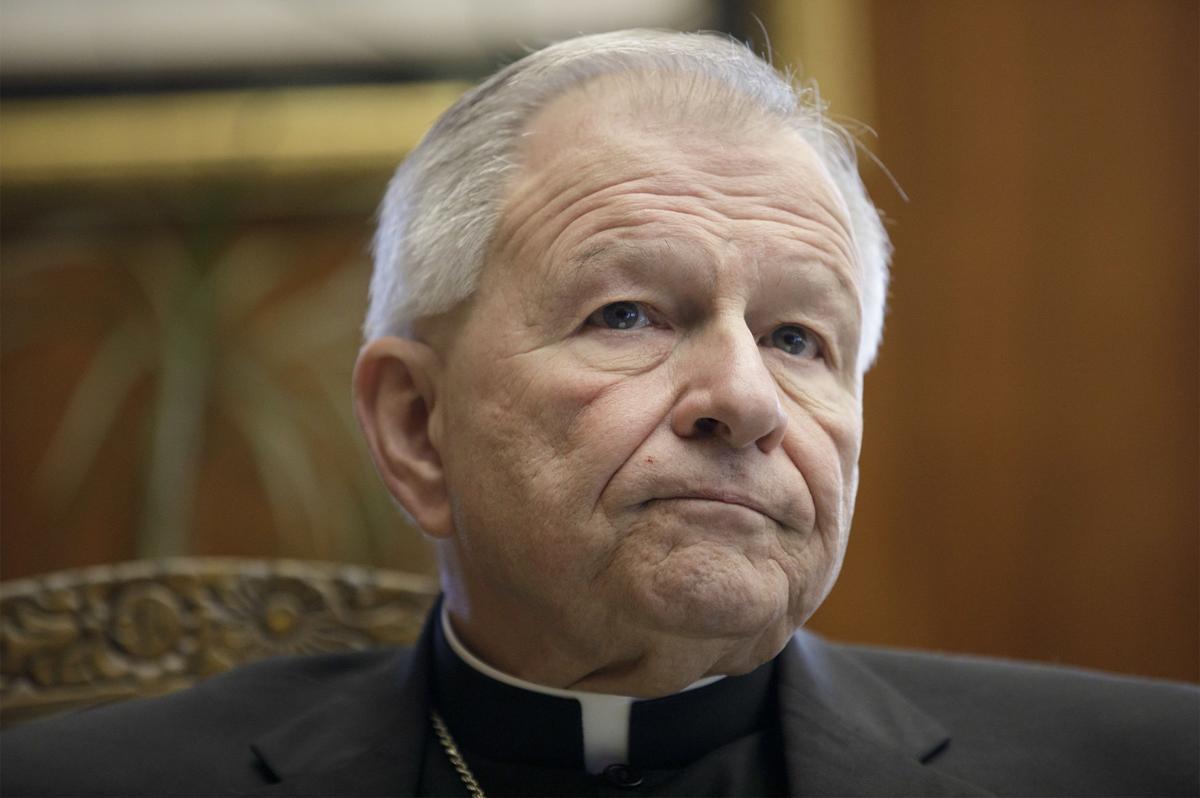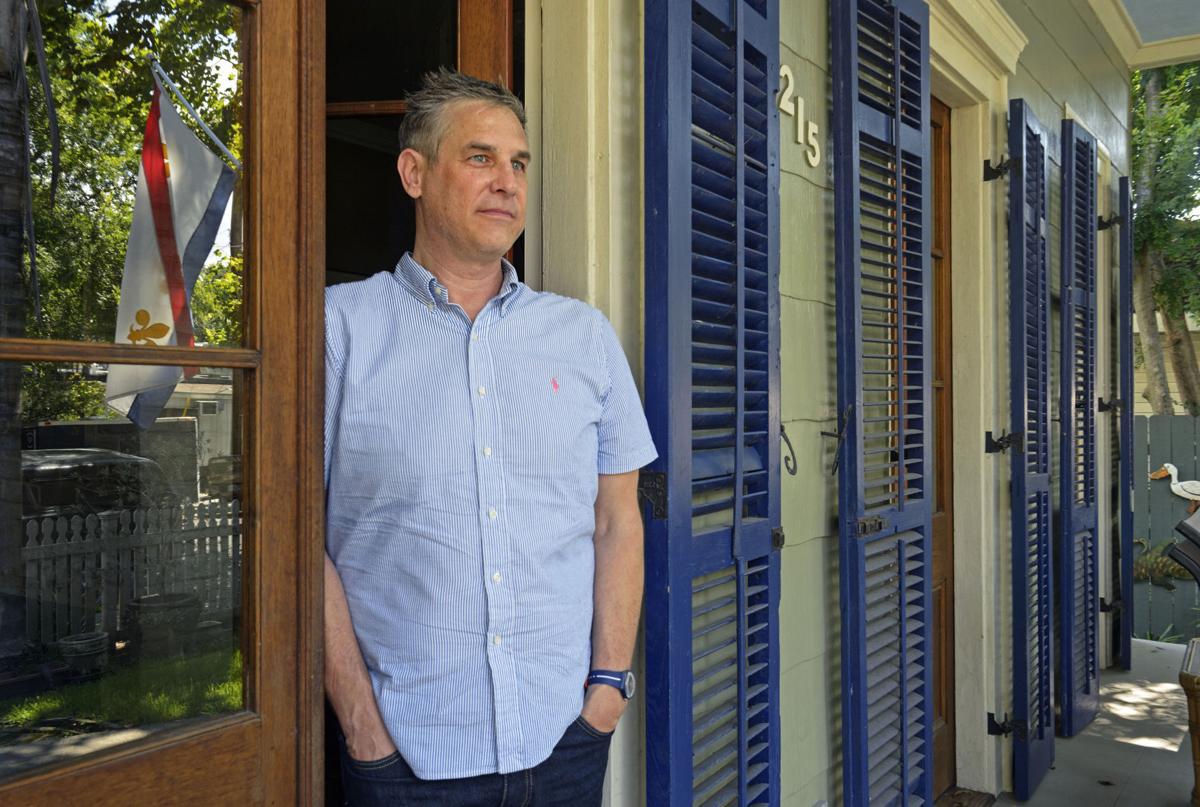|
Victim says Aymond could've stopped sex abuse at New Orleans seminary in 1980s
By Ramon Antonio Vargas
A man recently accepted a $150,000 settlement from the Archdiocese of New Orleans after claiming a veteran priest repeatedly molested him as a teenager in the mid-1980s at Notre Dame Seminary, when now-Archbishop Gregory Aymond held a high-ranking post there. The man, Kevin Michael Bourgeois, said that he often encountered Aymond as priest Carl Davidson, then in his mid-40s, led the high schooler into booze-soaked sleepovers at the seminary. That’s where the abuse unfolded. Bourgeois argues that Aymond should have known what was going on and put a stop to it. In an interview Wednesday, Aymond said, “I can assure you, in all complete honesty, that is not true. I wish I had known, because if I had known, I would have done something to stop it — I would have reported it, but I didn’t know.” Davidson, who died in 2007, was among the 61 priests whom the archdiocese last fall identified as credibly accused child abusers. Bourgeois said he is speaking out because he is plagued with doubts over whether the archdiocese can give parishioners the full accounting the church has promised, and which many victims crave, after decades’ worth of revelations of clergy abuse. “Every time I see him on the news (claiming) empathy, it makes me want to puke,” Bourgeois, now 52, said of Aymond. “I don’t believe him, don’t believe that he is penitent, because he knew my abuser was abusing boys.” Aymond on Wednesday said that accusation pained him greatly. “Right now, a central part of my ministry is caring for survivors and trying to bring about reconciliation and healing,” he said. “If I had known something like this and didn’t do anything about it, I would not have been able to live with myself.” Davidson was a longtime employee of St. John Vianney Prep School, now defunct, which bordered Palmetto Street, about a mile from the seminary. In a seven-page questionnaire he filled out for the archdiocese, Bourgeois wrote that he met Davidson in 1982, when he was chosen at the end of his freshman year for the select school choir — known as the Vianney Singers — which the priest directed. As a sophomore, Bourgeois recalled, Davidson invited him to his room at a rectory adjacent to St. John. Bourgeois said the gesture made him “feel special,” and he now realizes it was the start of a grooming process. By the time Bourgeois was a junior, Davidson was transferred to Notre Dame Seminary, but the two remained close. Bourgeois said he and two of his friends would visit Davidson there and would go along when the priest went to Houma to see his mother. He said that’s also when Davidson would begin inviting him and his friends to spend the night at his apartment in the seminary. Davidson would buy the boys fried chicken and biscuits from a nearby Popeyes. He would drink Scotch with them and listen to music until the boys fell asleep — either in his bed or on a sleeper sofa they helped him pick out of a catalog. On one of the nights when it was his turn to sleep in the bed with the priest, a 16-year-old Bourgeois woke up to realize that Davidson was fondling his genitals. Bourgeois pretended to sleep through it. “I had never had a sexual experience until that … night at Notre Dame Seminary,” Bourgeois wrote in his questionnaire. He said Davidson continued abusing the boy during subsequent sleepovers at his apartment over the next year. Bourgeois recalled he would even get ready for school at Davidson’s apartment, with Davidson at times joining him in the shower. During the summer after Bourgeois’ senior year, he said, Davidson made an advance in the apartment. This time, Bourgeois — who did not drink with Davidson on that occasion — rejected the older man and fled the apartment when the phone rang. He broke off contact with him after that. For years, Bourgeois didn’t tell his friends or family, at first unsure whether he had done something to invite the abuse. “All I felt was horror and shame,” he said. Aymond — who acknowledged remembering Bourgeois as a St. John Vianney student — said Davidson’s sleepovers were “totally inappropriate” and that “the whole scenario was wrong.” But he said he didn’t live in the same building as Davidson, which would have made it difficult for him to follow Davidson’s comings and goings. “If I had known anything whatsoever, even a suspicion, even grooming, I would have done something about it,” Aymond reiterated. Coming forwardBourgeois said he “buried” memories of his abuse as he earned a bachelor’s degree in psychology and a master’s in social work from the former University of Southwestern Louisiana and Louisiana State University, respectively. He initially pursued a career as a licensed clinical social worker, and he was working as a business development manager for a local hospital network when he saw the list of credibly accused clergy that Aymond and the archdiocese released on Nov. 2. The name of Davidson jumped out at Bourgeois. In releasing the list, the archdiocese said the first abuse allegation against Davidson came in 1989. In 2002, the same year the exposure of widespread clergy abuse in Boston shocked the nation, two men who had studied at St. John Prep came forward with molestation claims against Davidson. Those complaints would lead then-Archbishop Alfred Hughes to suspend Davidson from the ministry, though his suspension didn’t become public until 2004. Davidson died three years after that. Bourgeois’ allegations predate the first accusation against Davidson by at least four years. His memories about Davidson came flooding back when the list was released, causing him anxiety, depression and post-traumatic stress disorder, he said. When Aymond invited any other survivors with undisclosed claims of clergy abuse to contact the archdiocese, Bourgeois hired an attorney, Ryan Monsour. Monsour’s uncle, Rick Monsour, years ago publicly identified himself as one of the two Davidson survivors who complained to the archdiocese in 2002. With Ryan Monsour in his corner, Bourgeois reached out to the archdiocese, filled out the questionnaire it gives to clergy abuse claimants, met with a therapist, and scheduled a mediation session for April 22. Bourgeois said he spent much of that session fielding questions about his answers on the questionnaire as well as on the notes his therapist took. He sensed that one assertion in his questionnaire in particular caught the attention of archdiocesan officials: “The current archbishop of New Orleans had the ability to protect me and other St. John Prep students from this predator priest.” Bourgeois said the church seemed equally interested when he explained that the initials “G.A.” scribbled in his therapist’s notes referred to Aymond. Bourgeois said he requested a copy of the therapist’s notes this week, but the therapist declined to release them. In any event, Bourgeois said he made it clear during the mediation that he and his friends would often cross paths with Aymond as Davidson led them in for sleepovers. Bourgeois said they recognized Aymond as “Father Greg,” or simply “Greg.” “Father Davidson would parade us through the building,” Bourgeois said in an interview this week. “I remember walking by his office (and) saying to myself, ‘Oh, there’s Father Greg. Cool!’” Colleagues for yearsAymond said he doesn’t recall ever seeing Bourgeois at the seminary. He said it would have been unusual but not unthinkable for St. John students to drop in to the seminary from time to time, such as to pick up a music recording from a choir director like Davidson. Davidson and Aymond were colleagues for a number of years at St. John Vianney. Aymond worked there in various capacities for much of the 1970s, as he rose from teacher to rector. In 1981, Aymond began a five-year stint as the director of pastoral education — as well as professor of pastoral counseling and delivering sermons — at Notre Dame Seminary. That was the position Aymond would have held when Bourgeois says he encountered him in the seminary. After several hours of negotiations on the day of the mediation, Bourgeois said he accepted a settlement offer of $150,000, plus $10,000 worth of counseling over the next two years. The agreement called for Bourgeois to forfeit his right to file a lawsuit against the archdiocese seeking compensation for his claims against Davidson. It also required him to keep the amount associated with the settlement confidential — a provision he has decided not to honor. According to transparency policies that American bishops adopted in the wake of the 2002 scandal in Boston, dioceses are prohibited from entering into settlements “which bind the parties to confidentiality, unless the … survivor requests confidentiality and this request is noted in the text of the agreement.” Nonetheless, such provisions are still common in church settlements. Bourgeois said this week that he did not request the confidentiality provision in his agreement but signed the document anyway to receive compensation for what Davidson had done. Richard Bordelon, an attorney who frequently represents the archdiocese, declined to comment Wednesday on why the provision was in there. The settlement agreement bore the signatures of Bourgeois, Monsour, Bordelon and the archdiocese’s general in-house counsel at the time, Wendy Vitter. Vitter no longer works at the archdiocese. Three weeks after the settlement, the U.S. Senate confirmed her nomination to serve as a federal district judge in New Orleans. A turning pointWhile Bourgeois called the mediation an important step in his healing, he said he’s been unable to work since December, taking time off to tackle the “depression, anxiety, trauma, isolation, fear and shame” that he’s felt since seeing Davidson’s name on the list. He’s taking an antidepressant, and he’s continuing weekly therapy visits. But he said attending a meeting of the Survivors Network for those Abused by Priests in Virginia last month was a turning point for him. “That was the first time I was able to talk about this in a group setting with similarly minded people,” Bourgeois said. “It was powerful.” Inspired, he’s considering relaunching his social work practice. He said the meeting gave him the courage to share his story more widely, hoping it will help those seeking a fuller account of the clergy abuse scandal. One person he’s mentioned meeting was Richard Windmann, a new spokesman for SNAP, who went public last year about the abuse he said he suffered at Jesuit High School when he was a teenager in the 1970s. In his capacity with SNAP, Windmann issued a statement in support of Bourgeois this week, contending, “From what we've learned, Archbishop Aymond was surrounded by this behavior against our children, and was either blind, complicit, or refused to do anything about it. Archbishop Aymond has publicly called us skeptics, but it is very difficult to remove our skepticism when we learn that he has not been forthcoming in terms of the wholesale abuse of our children." Aymond disputes such a notion, saying, “I wish I knew (what Davidson was doing). If I had known, I could’ve prevented him and others from being abused. That’s what my ministry is about — to bring these things to the light so people aren’t abused.” Aymond also said he hoped Bourgeois would one day meet with him. “I am glad to … better understand what he is alleging,” Aymond said. Bourgeois, though, said he isn’t interested in such a meeting and no longer confides in the church. “They protected Carl Davidson until they couldn’t protect him anymore,” Bourgeois said. “There’s a generation or two of people who trusted the church, and that trust was shattered.” Contact: rvargas@theadvocate.com
|
.
Any original material on these pages is copyright © BishopAccountability.org 2004. Reproduce freely with attribution.


